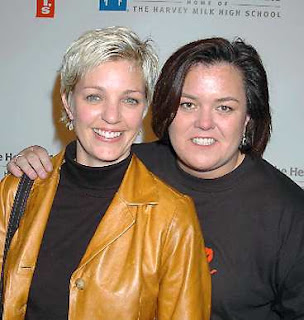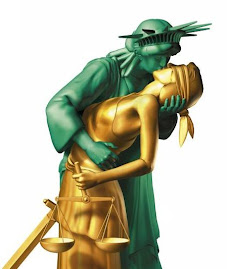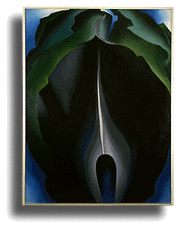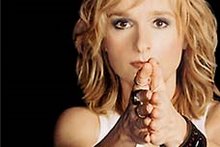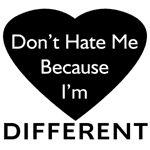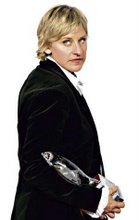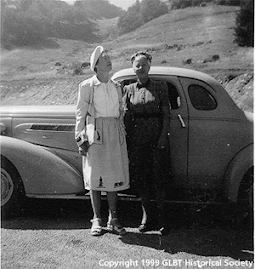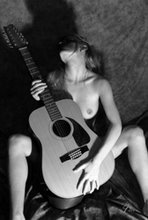'A gondola, the still lagoon;
A summer's night, an August moon,
The splash of oars, a distant song,
A little sigh, and - was it wrong?
A kiss, both passionate and long.'
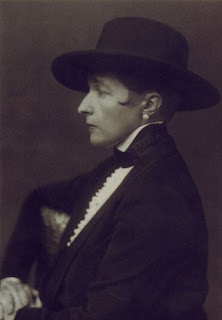
"On the Lagoon" Radclyffe Hall, 1906
Radclyffe Hall
Marguerite Radclyffe Hall was born on the 12th of August 1880, in the Westcliff district of Bournemouth. Her father, Radclyffe Radclyffe Hall, had inherited a fortune from his great grandfather, a physician who opened a sanatorium for consumptives in Torquay which became so famous that it established the Devon town as a fashionable resort, and earned him a knighthood in the bargain. Her mother, Marie Sager, was the daughter of a successful American businessman. Despite their wealth, their marriage was not a happy one.
Her parents separated when Marguerite was still a babe-in-arms and her mother married Albert Visetti, a professor of singing at the Royal College of Music, and they moved to a stately house in Earls Court, London in 1883 .
Ignored by her mother and step-father and cared for by a succession of nannies, Marguerite grew into a solitary, self-absorded child, spending hours by herself in the large walled garden at the rear of the house. It was here, playing with her only true friends her pets, that she began to invent her own verses and rhymes.
In August 1901, Maguerite came of age. Her father, who she had seen no more than a half a dozen times in her life, had died a lonely death in a hotel room in Folkestone in 1898, but shortly before he had passed away, he had made a new will which named her as his sole beneficiary.
At the age of twenty-one, Marguerite spread her wings and flew the nest. She first went travelling, spending a year touring the Southern States of America with a cousin Jane Randolph.

They travelled in an old single-pistoned jalopy with, for protection, a fierce one-eyed bulldog named Charlie and a couple of six-shooters. Marguerite stopped using her Christian name, asking everyone to call her Radclyffe, and she started to smoke, cigars as well as cigarettes - a habit which she continued for the rest of her life. She also began to dress in men's clothing. In the process of finding her real self, she was also discovering her true sexuality.
In 1907, whilst on holiday in the German spa town of Homberg, Radclyffe met the woman who was to literally change her life. She was the Edwardian socialite and beauty Mabel Veronica Batten.
(Seen here in full vocal flight as painted by John Singer Sargent)
Their chance meeting was the start of a relationship which lasted more than nine years.
Encouraged by Mabel, or 'Ladye' as Radclyffe called her - 'John' as Mabel in turn called Radclyffe, published two volumes of poetry, both of which were greeted with acclaim and sold successfully.

Mabel Batten died in 1916 and Radclyffe set up home with Batten's cousin, Una Troubridge. The first of Radclyffe Hall's novels 'The Unlit Lamp' was published in 1924, swiftly followed eighteen months later by her second, 'Adams Breed', which won two major literary awards. It was her third, The Well of Loneliness', originally published in 1928 - which ensured Radclyffe Hall's place in literary history.

In her diary, Una recalled how the book could so easily have never been written.
26th June 1926.
'It was after the success of 'Adam's Breed' that John came to me one day with unusual gravity and asked my decision on a serious matter. She had long wanted to write a book on sexual inversion, a novel that would be accessible to the general public who did not have access to technical treaties. It was her absolute conviction that such a book could only be written by a sexual invert, who alone could be qualified by personal knowledge and experience to speak on behalf of the misunderstood and misjudged minority. She pointed out that in view of our union and all the years that we had shared a home, what affected her must also affect me and that I would be included in any condemnation. Therefore she placed the decision in my hands and would write or refrain as I should decide. My reply was made without so much as an instant's hesitation. I told her to write what was in her heart, that so far as any effect on myself was concerned, I was sick to death of ambiguities, and only wanted to be known for what I was and to dwell with her in the palace of truth.'
The book appeared on the bookshelves on the 26th June 1928, and sold steadily at first. Then on Sunday the 19th of August, the editor of the Sunday Express, James Douglas, climbed onto his high horse and declaimed:
'I am well aware that sexual inversion and perversion are horrors which exist among us today. The decadent apostles of the most hideous and loathsome vices no longer conceal their degeneracy. They do not shun publicity, on the contrary they take delight in their flamboyant notoriety. The consequence is that this pestilence is devastating young souls.'
Two days later Cape, the book's publisher, received a letter from the Home Secretary, Sir William Joynson-Hicks, saying that he had read 'The Well of Loneliness' and was in no doubt that it was obscene. Proceedings were brought under the Obscene Publications Act of 1861, and the case appeared before the Chief Magistrate of London, Sir Chartres Biron, at Bow Street Magistrates on the 14th of November 1928. The court found the case proven and despite the fact that it contained no profanities or graphic depictions of sex, the book was banned from sale.
Marguerite Radclyffe Hall - 'John' died of cancer at seven minutes past eight in the evening of the 7th October 1943. Una Troubridge, who had nursed her to the end, arranged for her burial in the vault at Highgate alongside Mabel Batten. 'The Well of Loneliness' was finally published seven years later and has since sold millions of copies and been translated into seven languages.
_____________________________________________
Radclyffe Hall Born 12th. August, 1880, in Bournemouth, Dorset; died 7th. October, 1943, in Dolphin Square, London. Born Marguerite Radclyffe-Hall, the daughter of Radclyffe Radclyffe-Hall. She was known as Peter as a child but later called herself John, probably after her great-grandfather whom she strongly resembled.
She was educated at King's College, London, and then in Germany.
Between 1906 and 1915 she published five volumes of poetry, mostly about "that potent passion, that divine desire" which she felt for women. Several of her verses were set to music, some by Coleridge Taylor. Her most famous song was The Blind Ploughman, with music by Coningsby Clarke.
In 1907 the poetry brought her to the attention of the 50-year-old Mabel Batten, who was married with a grown-up daughter. They fell in love and set up home together when Batten's husband died.
In 1915 Radclyffe Hall fell in love with Mabel Batten's cousin, Una Troubridge (1887-1963), a sculptor who was married to an admiral and had a young daughter. Mabel Batten died in 1915, and in 1917 Radclyffe Hall and Una Troubridge began living together.
[. . .]
In the 1920s she began writing novels and writing under the name of Radclyffe Hall. Her Adam's Breed in 1926, was the only novel, apart from E. M. Forster's A Passage to India, to be awarded both the Prix Femina and the James Tait Black Memorial Prize.
In 1928 she wrote The Well of Loneliness, the first undisguised lesbian novel and largely autobiographical. This caused a storm and James Douglas, the editor of the Sunday Express, declared in a front-page article, "I would rather give a healthy boy or a healthy girl a phial of prussic acid than this novel. Poison kills the body, but moral poison kills the soul." [. . .] The book was banned in Britain but Jonathan Cape sent the type-moulds to Paris where Pegasus Press published it. Copies were sent all over the world including Britain where Customs seized copies on the way to Leonard Hill's bookshop in Great Russell Street. Leonard Hill was charged, and defense lawyers gathered support for the book from leading intellectuals including E. M. Forster, Virginia Woolf, and Laurence Housman. However, the magistrate disallowed the evidence as to the merit of the work and ruled that it was an "obscene libel" and it was suppressed. However the book continued to be published abroad and was very popular, particularly in America. It was translated into eleven languages and sold a million copies during the author's lifetime. [. . .]
She never repeated this success with her other novels. [. . .] All of her books were dedicated to "The three of us", the other two being Mabel Batten and Una Troubridge.
Ground-breaking as it was The Well of Loneliness, would now seem dated as it reflects the then current theories of "sexual inversion" to which Radclyffe Hall subscribed. She also cultivated the stereotype of the masculine lesbian. However the notoriety of her work brought lesbianism to the consciousness of the British public and the rest of the Anglo-Saxon world which had previously been able to largely ignore it.
Sam Goldwyn grabbed on of his producers and said: 'They're all talking about a book called the Well Of Loneliness. I'm going to make a film about it.' The man was incredulous. 'You can't do that, Sam,' he said earnestly. 'The book's all about lesbians.' 'What does it matter?' said Sam firmly. 'Make 'em Austrians.' (Letter in The Sunday Times, August 3, 1994.)
It supports a depraved practice and is gravely detrimental to the public interest. (Home Office papers of 1928 [released November, 1997] giving its opinion of The Well of Loneliness.)
Radclyffe Hall was listed at number 16 in the top 500 lesbian and gay heroes in The Pink Paper, 26th. September, 1997, issue 500, page 22.
Her The Well of Loneliness was number 7 of the list of the top 100 gay books compiled in the USA in 1999.



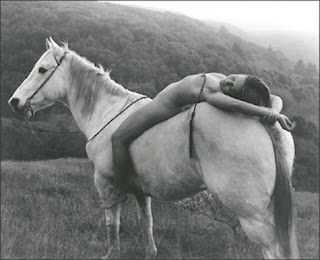
 The dominant view of sexuality in our society is anti-erotic. We are constantly overwhelmed by images that reinforce how the physical has been separated from the psychic, emotional, and spiritual connection. Our sense of the grace of sexuality becomes lost.
The dominant view of sexuality in our society is anti-erotic. We are constantly overwhelmed by images that reinforce how the physical has been separated from the psychic, emotional, and spiritual connection. Our sense of the grace of sexuality becomes lost.


 KB: So, were you disappointed that Dave wasn’t there? (Dave was out with shingles.)
KB: So, were you disappointed that Dave wasn’t there? (Dave was out with shingles.) Two courageous women who became lovers during one of the most socially conservative eras in American history, Del Martin and Phyllis Lyon were among the founders of a lesbian liberation movement that developed and enlarged the very definition of lesbianism.
Two courageous women who became lovers during one of the most socially conservative eras in American history, Del Martin and Phyllis Lyon were among the founders of a lesbian liberation movement that developed and enlarged the very definition of lesbianism. In their early influential book, Lesbian/Woman (1972), Lyon and Martin challenged any view of lesbians that focused only on sexuality by defining a lesbian as "as a woman whose primary erotic, psychological, emotional and social interest is in a member of her own sex, even though that interest might not be overtly expressed." This concept not only opened the door for women who had never been sexual with women to see themselves as lesbians, but it also laid the foundation for a woman-identified subculture that became the basis for the lesbian movement of the 1970s. Martin and Lyon have also become role models for lesbian couples by staying in a committed relationship for over fifty years.
In their early influential book, Lesbian/Woman (1972), Lyon and Martin challenged any view of lesbians that focused only on sexuality by defining a lesbian as "as a woman whose primary erotic, psychological, emotional and social interest is in a member of her own sex, even though that interest might not be overtly expressed." This concept not only opened the door for women who had never been sexual with women to see themselves as lesbians, but it also laid the foundation for a woman-identified subculture that became the basis for the lesbian movement of the 1970s. Martin and Lyon have also become role models for lesbian couples by staying in a committed relationship for over fifty years.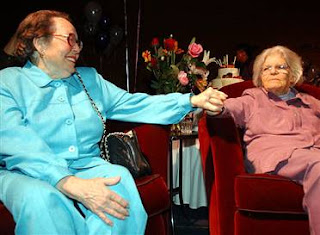

 Bisexual Mexican artist Frida Kahlo has become an international icon for the power and intensity of her art, and the extraordinary suffering that she experienced in life.
Bisexual Mexican artist Frida Kahlo has become an international icon for the power and intensity of her art, and the extraordinary suffering that she experienced in life.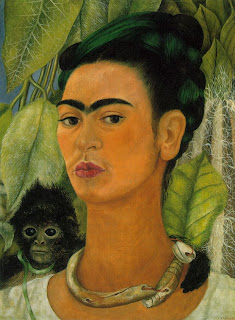 Both artists had numerous affairs. Among Kahlo's lovers were Leon Trotsky and other men, but they also included several women. Available evidence suggests that her male lovers were more important to Kahlo than her lesbian affairs. Her friend Lucienne Bloch recalled Rivera saying, "You know that Frida is a homosexual, don't you?" But the complexity of the artists' marriage warns against taking this statement at face value.
Both artists had numerous affairs. Among Kahlo's lovers were Leon Trotsky and other men, but they also included several women. Available evidence suggests that her male lovers were more important to Kahlo than her lesbian affairs. Her friend Lucienne Bloch recalled Rivera saying, "You know that Frida is a homosexual, don't you?" But the complexity of the artists' marriage warns against taking this statement at face value.
 They travelled in an old single-pistoned jalopy with, for protection, a fierce one-eyed bulldog named Charlie and a couple of six-shooters. Marguerite stopped using her Christian name, asking everyone to call her Radclyffe, and she started to smoke, cigars as well as cigarettes - a habit which she continued for the rest of her life. She also began to dress in men's clothing. In the process of finding her real self, she was also discovering her true sexuality.
They travelled in an old single-pistoned jalopy with, for protection, a fierce one-eyed bulldog named Charlie and a couple of six-shooters. Marguerite stopped using her Christian name, asking everyone to call her Radclyffe, and she started to smoke, cigars as well as cigarettes - a habit which she continued for the rest of her life. She also began to dress in men's clothing. In the process of finding her real self, she was also discovering her true sexuality. Mabel Batten died in 1916 and Radclyffe set up home with Batten's cousin, Una Troubridge. The first of Radclyffe Hall's novels 'The Unlit Lamp' was published in 1924, swiftly followed eighteen months later by her second, 'Adams Breed', which won two major literary awards. It was her third, The Well of Loneliness', originally published in 1928 - which ensured Radclyffe Hall's place in literary history.
Mabel Batten died in 1916 and Radclyffe set up home with Batten's cousin, Una Troubridge. The first of Radclyffe Hall's novels 'The Unlit Lamp' was published in 1924, swiftly followed eighteen months later by her second, 'Adams Breed', which won two major literary awards. It was her third, The Well of Loneliness', originally published in 1928 - which ensured Radclyffe Hall's place in literary history. In her diary, Una recalled how the book could so easily have never been written.
In her diary, Una recalled how the book could so easily have never been written. Lesbian Comedian
Lesbian Comedian